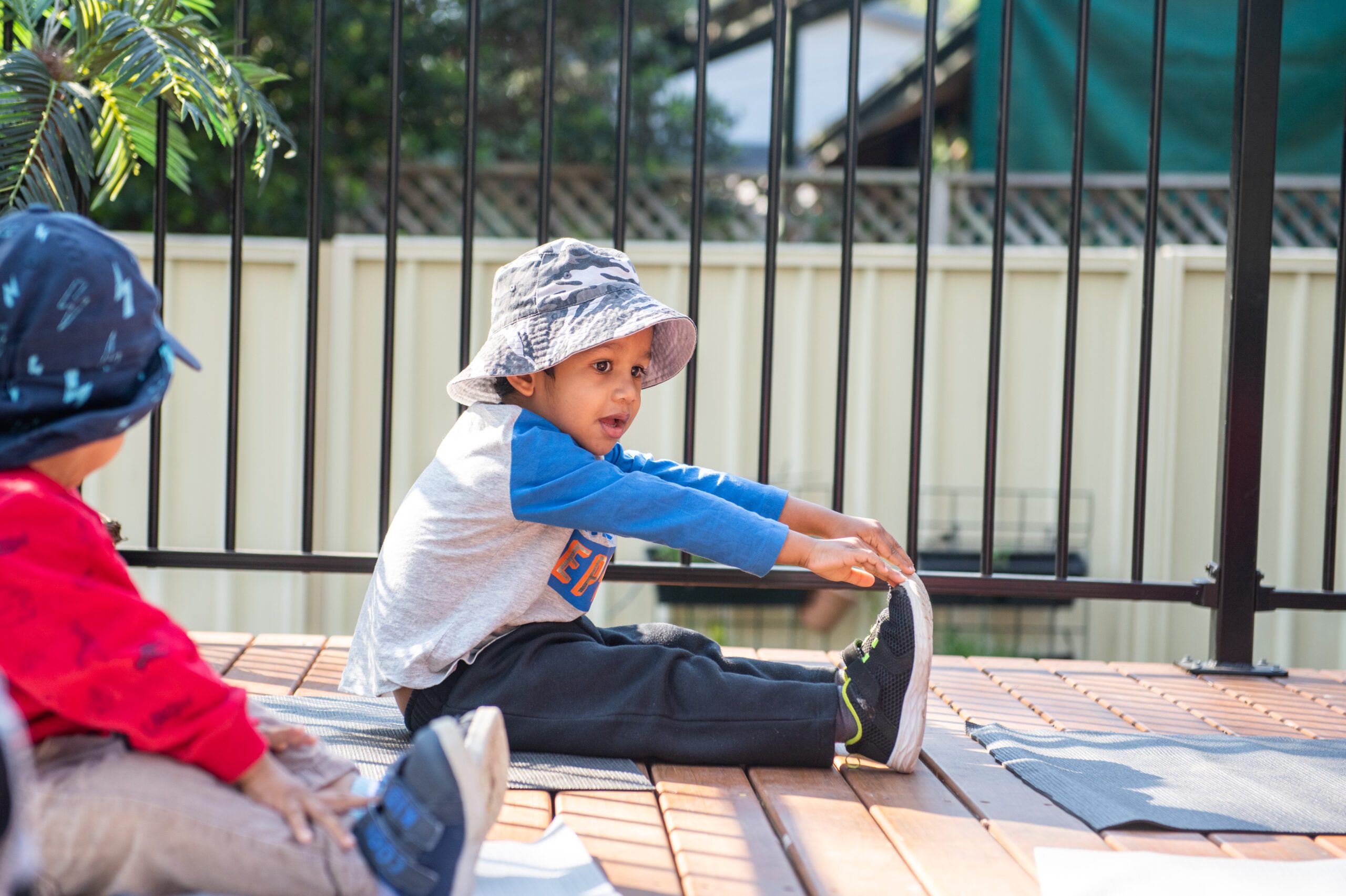
If you’ve ever watched your toddler sprint in circles for no reason or seen your preschooler jump, spin, and climb like they’re training for a circus – you’re not alone.
At Milestones Early Learning, we believe movement isn’t just something kids do to burn off energy – it’s how they learn, grow, and thrive. That’s why we’ve created a free Movement Moments cheat sheet for parents – a simple printable you can stick on the fridge, filled with quick, low-prep activities to support your child’s development at home. You’ll find the download further down in this post.
From first steps to full-speed sprints, every twist, tumble and wiggle is helping your child build confidence, coordination, and brainpower.
Why Movement Matters in the Early Years
Children under five are naturally wired to move - it’s how they explore their world and understand how their body works in space. This type of large-body movement, called gross motor development, is essential for:
- Building strength, balance, and coordination
- Supporting brain development and focus
- Developing spatial awareness and body confidence
- Preparing children for everyday skills like sitting at a table, writing, or joining group games at school
At age 1, your child might be learning to crawl, stand and walk. By 2–3, many children are running, climbing, and jumping. At 4–5, they often enjoy more complex movement like hopping, skipping, and catching balls.
It’s also worth remembering that every child develops at their own pace. Some children love climbing and rough-and-tumble play, while others may prefer gentler activities like dancing, yoga, or water play. The important thing is that they’re moving in ways that feel comfortable and fun for them.
According to the Australian 24-Hour Movement Guidelines, toddlers and preschoolers should have at least 3 hours of active play each day, including energetic movement like running and climbing. That can sound like a lot, but it doesn’t all have to happen at once!
What Movement Looks Like in Child Care
You won’t see children sitting still for long at Milestones - and that’s a good thing! Our educators carefully design learning experiences that support gross motor development in fun, meaningful ways.
Children move throughout the day by:
- Navigating obstacle courses in the outdoor play space
- Dancing and stretching during music and movement sessions
- Balancing, jumping and crawling in our purpose-built learning zones
- Engaging in active group games, yoga, and child-led outdoor adventures
- Helping set up activities and pack away (yes, lifting and carrying counts!)
Movement is also embedded in our Lifelong Learning Curriculum, with physical wellbeing considered just as important as cognitive, social, and emotional development.
When Movement Feels Challenging at Home
As parents, it can be tricky. Some days your child is bouncing off the walls, other days, you can’t get them off the couch. That’s completely normal.
Here are a few tips to support your little mover:
- Embrace the wiggles: movement improves mood and focus
- Keep routines flexible - active play doesn’t always need a playground
- Join in! Children love to see you jump, stretch, or dance along
- Balance screen time with bursts of movement - 15 minutes here and there adds up
- Look for chances to move together: a walk to the park, a backyard chase, or a living room dance-off all count
Try These “Movement Moments” at Home
We’ve put together a handy Movement Moments Cheat Sheet you can print out and pop on the fridge. These quick, low-prep activities help build gross motor skills and can be done indoors or outside.
These little activities go a long way toward strengthening your child’s body, and giving them a fun, healthy outlet for all that energy.
Movement and School Readiness: What’s the Link?
Gross motor development isn’t just about physical health - it lays the groundwork for success at school, too. Strong core muscles help children sit up straight during group time, shoulder and arm strength supports pre-writing skills, and group movement games build confidence, cooperation, and social awareness.
At Milestones, we view physical development as part of whole-child learning, helping each child build the skills, focus, and confidence they’ll need for a successful start to school.
We’re Moving, Learning and Growing - Together
At Milestones, we support physical wellbeing from the very beginning, because we know movement fuels more than just muscles. It builds confidence, focus, and a lifelong love of learning.
Want to learn more about how we support your child’s development?
Find your local Milestones centre and book a tour.
Let’s get those little bodies moving - together!
